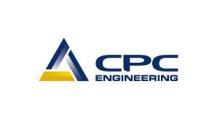

Mining and Energy lie at the heart of Western Australia’s future. WA Department of Mines figures show the State’s minerals sector employed +124,000 individuals in 2018 – 2019 and WA accounts for almost 50% of the country’s $218 Billion export earnings. What’s more, the sector is also a key innovator delivering new transport solutions, production technologies and massive investment in large, complex engineering projects. It makes sense for WA’s mining and energy sector to deliver not just the commodity itself but also value-adding opportunity by driving technological development and innovation.
State government initiatives like the Exploration Incentive Scheme, and Streamline WA, have helped improve the way our industry is supported and regulated. In looking to the future, a key question is around how government and business can stimulate activity. We might shape a vision whereby WA can become the Silicon Valley to the mining and energy sectors. How? We need to seize our opportunity to revolutionise energy – in a clean, smart, value added way.
Perth is said to be the sunniest and third windiest capital city in the world; it’s closer to Asian markets than Sydney and offers outstanding higher education, health and lifestyle options to half the world’s population who live less than a 10 hour flight away. These facts should inform our thinking about revolutionising processing and manufacturing in WA - and which global businesses should be based here.
A first step is to look at the downstream supply chain and rethink both resourcing and manufacturing. We may want to create high tech battery plants adjacent to assets where there is a key transformation story or deliver componentry for technologies that need our commodities. We must become clever about the unique things Western Australia enjoys but also the opportunities of the current energy revolution
With a greater focus on innovation and technology there will be improvements delivered across the mining, energy and engineering sectors in WA. These might be seen in new plant and equipment approaches, harnessing renewables, utilising AI and machine learning; they might be about time efficiencies or health and safety improvements. Sector participants seek a competitive edge but they must also protect their intellectual property. A key approach is to register patents locally so they reside within WA. With improvements migrated nationally or globally, we must invest in ensuring the benefits and value-adds achieved locally, circulate back into the local economy.
















